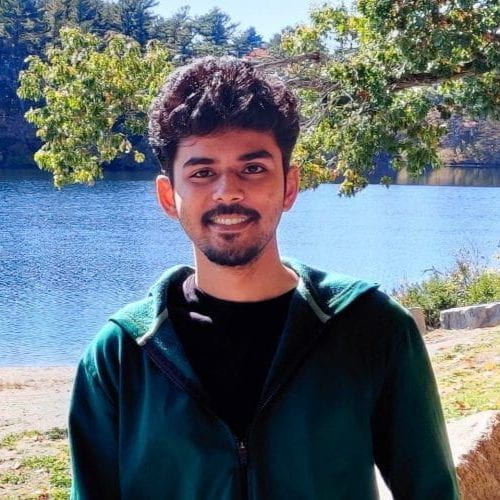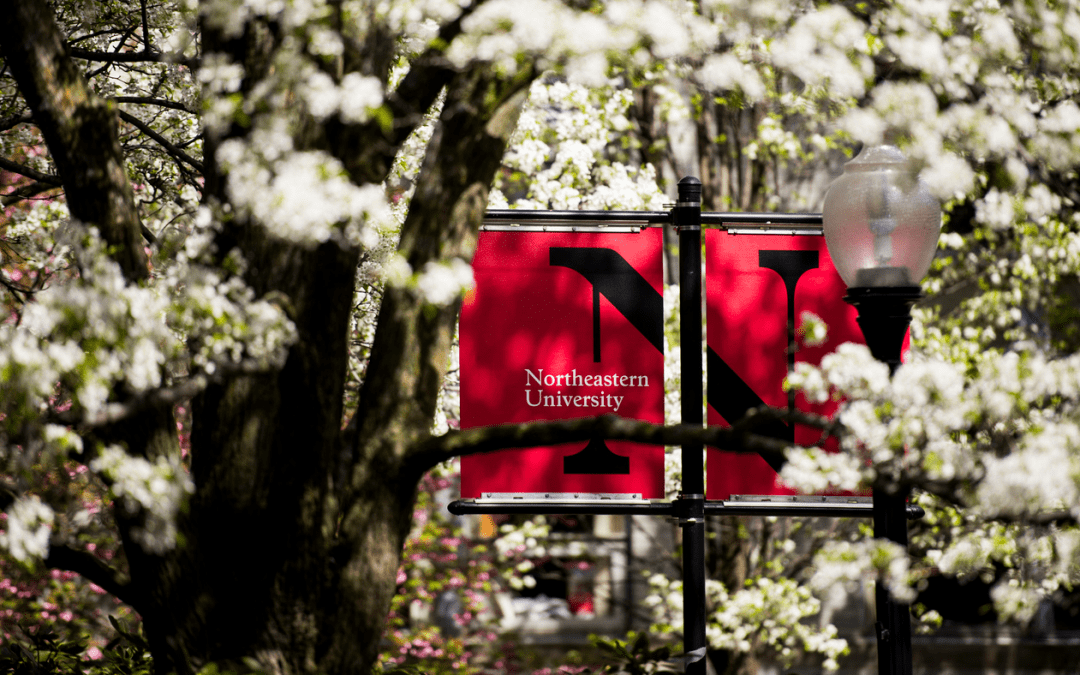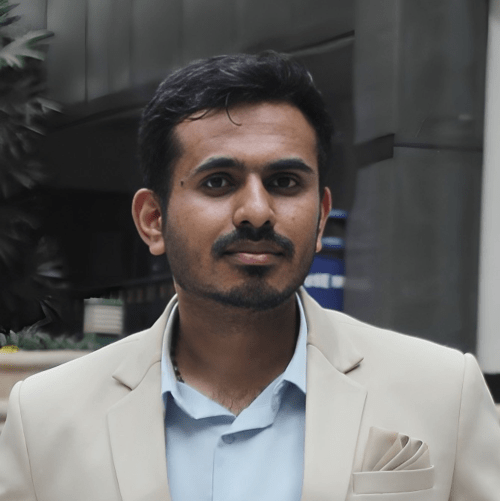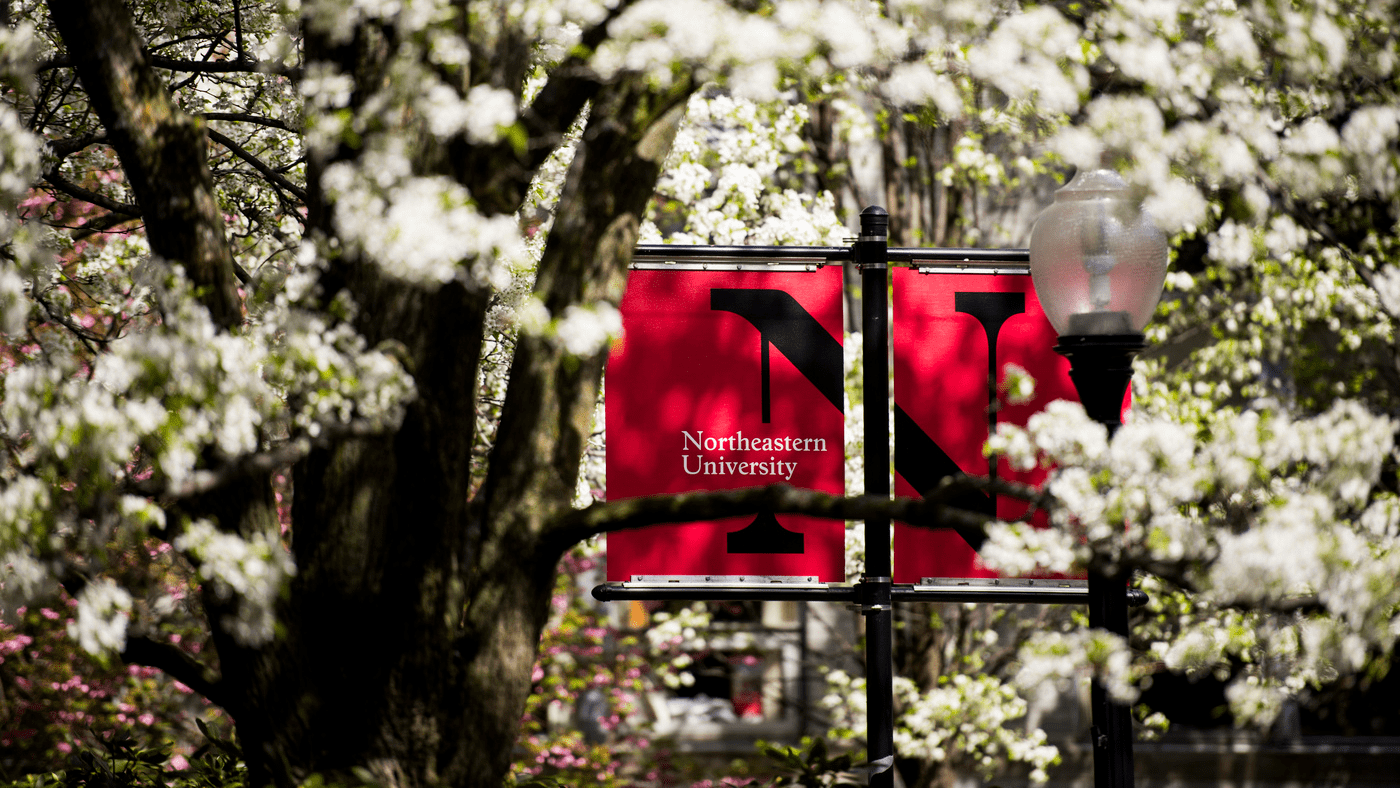
Hrishikesh Sanjay Pawar
Graduate Research Assistant
Sanjay is now pursuing a master’s degree in Information Systems at Northeastern University. He also possesses a Bachelor’s degree in Computer Engineering from the KJ Somaiya College of Engineering in Vidyavihar.
How did you secure your position in the Research Computing team? What steps did you take to land this job?
I reached out to one of the existing GRAs who referred me internally.
What are the main challenges you encounter in your job, and how do you overcome those challenges?
The field of research computing is vast and there are always new things that you’ve not encountered before. In that case, I try to research the topic in the documentation and on the internet. If that doesn’t help me resolve the issue I reach out to one of the supervisors in my team and they help me out.
What tools or technologies do you typically use in your research workflow?
Shell scripting, ServiceNow, VSCode, Markdown Language, Linux commands
Can you describe a typical day in your life as a Grad Research Assistant?
I start my day by checking whether there are any updates on my currently held tickets. I work on the existing tickets. Next I check if there are any new unclaimed tickets or incidents that I could work on next and I claim the tickets that I find interesting. I interact with my supervisors or other GRAs in case I need help with something.
What do you enjoy most about working on the Research Computing team?
The team is very helpful and warm when you reach out to them for help. They explain all the details required to understand the problem and answer all the questions patiently.
Outside of research, what are your hobbies or interests?
I like reading books, read over 30 books so far. I’ve also been working out in the gym for the past year.
Finally, what advice would you give to someone aspiring to pursue a GRA position in Research Computing?
Learn shell scripting and linux commands well. You should know how to be professional with the researchers that reach out to you for help. Be ready to pickup and learn things fast as you will have to constantly learn new things everyday.

Vrushali Phaltankar
Graduate Research Assistant
Vrushali is currently enrolled in the Master of Science in Information Systems program at Northeastern University. Additionally, she holds a Bachelor’s degree in Computer Science from Rajiv Gandhi Prodyogiki Vishwavidyalaya, Bhopal.
Can you briefly describe your current research project and its objectives?
My current work primarily involves helping researchers in running their workloads effectively on our Discovery cluster. I’ve been engaged in creating Docker images tailored for their specific applications. Additionally, I have contributed to trainings during the Research Computing Summer Bootcamp which provided valuable insights into best practices in research computing to the students and other users of Discovery.
How do you see your research contributing to the broader field of computing?
By optimizing resource utilization, streamlining deployment processes through containerization techniques like Docker, and enhancing workflow orchestration, we’re helping users run their workflows.
What are the main challenges you encounter in your job, and how do you overcome those challenges?
I encounter challenges such as customizing software environments for user’s needs and troubleshooting job scheduling issues. To overcome these, I engage in continuous learning and collaboration with peers, adopt proactive problem-solving strategies, ensure effective communication with researchers, and maintain comprehensive documentation for knowledge sharing.
What tools or technologies do you typically use in your research workflow?
I work on a range of tools and technologies to manage the Discovery cluster such as Slurm for workload scheduling and resource allocation. I also use Docker to encapsulate software environments. I utilize Linux command line extensively to work on everyday tasks.
Can you describe a typical day in your life as a Grad Research Assistant?
My day begins with checking the Snow dashboard to review my incidents. These incidents range from software issues to slurm jobs scheduling or tasks like adding users to discovery or UNIX groups. I also remain available for consultations with users who may require assistance with their computing needs.
What do you enjoy most about working on the Research Computing team?
What I enjoy most about working in the Research Computing team at Northeastern University is the collaborative environment that fosters continuous learning and growth. Additionally, being part of a team that supports research across various disciplines exposes me to a wide range of computational challenges and learning opportunities. Overall, the synergy within the team, coupled with the constant learning and exposure to exciting research projects, makes working in Research Computing a truly great experience.
Outside of research, what are your hobbies or interests?
One of my passions is traveling. I love immersing myself in different cultures, trying new foods, and exploring breathtaking landscapes. Cooking is another hobby that I thoroughly enjoy. Experimenting with flavors, and ingredients is both creative and therapeutic for me. In addition, I also have a keen interest in photography. Capturing moments and scenes from my travels, as well as everyday life, allows me to document memories.
Finally, what advice would you give to someone aspiring to pursue a GRA position in Research Computing?
Aspiring Graduate Research Assistants in RC should focus on building a solid background in computer science, including proficiency in programming languages and understanding of key concepts like parallel computing and algorithm design. Hands-on experience with tools and technologies commonly used in research computing, such as HPC clusters, Linux and scientific software packages, is important for gaining practical knowledge. Actively participating in trainings and workshops with professionals will broaden your knowledge and provide valuable opportunities.

Girish Pillai
Graduate Research Assistant
Girish is currently enrolled in a master’s program in computer Software Engineering at Northeastern University. Furthermore, he holds a Bachelor’s degree in Electronics and Telecommunication Engineering from the University of Mumbai, Mumbai.
How did you secure your position in the Research Computing team? What steps did you take to land this job?
In the past, I had experience working with Unix and Distributed computing. I was comfortable navigating shell environments and had a strong command over Linux commands and shell scripting. One day while browsing through workday, I came across a job listing that matched my skills and experience perfectly and applied immediately.
What are the main challenges you encounter in your job, and how do you overcome those challenges?
At times, certain software may encounter compatibility issues on the cluster, compounded by the constraints of limited available resources. In such instances, resolving these challenges often entails a process of trial and error, coupled with extensive debugging efforts and thorough exploration of documentation. This iterative approach is necessary to pinpoint the root causes of the issues and devise effective solutions that optimize software performance within the resource-constrained environment of the cluster.
What tools or technologies do you typically use in your research workflow?
Python, Docker, Unix, Shell Scripting, Slurm, Sbatch, Jupyter, PySpark, Pytorch, Visual studio, Vim editor
Can you describe a typical day in your life as a Grad Research Assistant?
A typical day in my life as a Graduate Research Assistant revolves around various tasks essential for research support. These include activities such as creating containers, installing software, and optimizing code to leverage parallel computing and enhance resource utilization on the cluster. In addition to optimizing existing code, I also manage the configuration of access to clusters and partitions. Another crucial aspect of my role involves providing personalized assistance to users, ensuring that their projects receive tailored support to address their specific needs and requirements. A considerable portion of my time is dedicated to reading documentation and scouring the internet for resources, to solve problems.
What do you enjoy most about working on the Research Computing team?
What I appreciate most about working in the Research Computing team is the agile environment and flexibility it offers. I have the freedom to work according to my availability and the level of challenge I’m comfortable with. Whether it’s handling simple tasks like granting access or tackling more complex assignments like deploying docker containers and software, I have the opportunity to engage with a variety of tickets. Additionally, the team is incredibly approachable, and I find that all the full-time staff members are highly knowledgeable and readily accessible for support and guidance.
Outside of research, what are your hobbies or interests?
Cycling around the Boston, hitting the gym, and going for runs are among my favorite pastimes. Frequently, I dedicate my leisure hours to reading technical blogs, where I explore the intricate workings and perspectives behind the development of large-scale systems.
How do you maintain a work-life balance while working as a Grad Research Assistant?
I allocate four hours each day to my research work. When I’m tackling complex tasks, I prefer to immerse myself for a continuous four-hour block. However, there are days when I have three to four consultations scheduled, requiring flexibility in my approach. On more relaxed days, I split my work into two-hour slots to maintain productivity while accommodating other responsibilities or activities.
Finally, what advice would you give to someone aspiring to pursue a GRA in research computing?
For those considering pursuing a Research Assistantship position, I would highly recommend seizing the opportunity to work with Northeastern Research Computing. It’s not just another on-campus or part-time job; it’s an invaluable experience that can significantly enhance your career prospects, especially if you’re aiming for a STEM-oriented path. While you may encounter challenges initially, it’s crucial to remain adaptable in your approach. Don’t hesitate to seek assistance whenever you encounter difficulties. Even if you feel your question may be trivial, the seniors and full-time staff are incredibly approachable and willing to help. They’re among the most supportive individuals you’ll come across, and reaching out to them can greatly expedite your learning process and problem-solving abilities.
Paarthvi Sharma
Lead Graduate Research Assistant
Paarthvi is pursuing a master’s degree in computer science at Northeastern University’s Khoury College of Computer Science. In addition, she holds a Bachelor’s degree in Electronics and Communications Engineering from Dayananda Sagar College of Engineering in Bengaluru.
How did you secure your position in the Research Computing team? What steps did you take to land this job?
I secured my position in the Research Computing team by first applying through the Northeastern Workday portal. The interview process involved meeting with full-time members of the Research Computing team. During these discussions, I emphasized my technical abilities, my collaborative work style, and my enthusiasm for learning and adapting to new challenges.
Can you briefly describe your current research project and its objectives?
I currently work as the Lead Graduate Research Assistant with the Research Computing (RC) team. My primary responsibilities include managing the ticket queue, facilitating support among other RAs in the team, summarizing the weekly ticket summaries, and conducting meetings to discuss the highlights and trends of ongoing issues. Additionally, I conduct consultation sessions with other researchers and students, helping them to make the best use of the research computing resources.
What are the main challenges you encounter in your job, and how do you overcome those challenges?
In my role, I frequently encounter new and diverse challenges, often related to the resources we manage. To tackle these issues, I initially conduct independent research to understand and resolve them. If this approach doesn’t yield the necessary information, I then reach out to the full-time employees for assistance. The team is incredibly supportive and always ensures that all Research Assistants have the resources and support needed to effectively do their job.
What tools or technologies do you typically use in your research workflow?
In our daily workflow, we primarily utilize Linux commands, Bash and Python scripting for managing day-to-day tasks. Additionally, we leverage containerization technologies, including Singularity and Docker, to facilitate classroom environments on the Discovery platform.
What do you enjoy most about working on the Research Computing team?
What I enjoy most about working in the Research Computing team is the opportunity to collaborate with some of the kindest, most helpful, and intelligent individuals.
Outside of research, what are your hobbies or interests?
I am passionate about painting and skating. A fun fact about me is that I was a national-level skater and roll ball player back in India.
Prajwal Shenoy
Graduate Research Assistant
Prajwal is pursuing Master degree in Computer Science at Khoury College of Computer Science, Northeastern University. In addition, he possesses a Bachelor’s degree in Electrical, Electronics, and Communications from Visvesvaraya Technological University, Bengaluru.
How did you secure your position in the Research Computing team? What steps did you take to land this job?
I reached out to one of the existing RA and later applied on Workday when the posting was made public. My previous experience with cloud computing and Linux OS helped me land the job.
Can you briefly describe your current research project and its objectives?
I am currently working on a project where we generate the headline for a news article using different text generation models. I am evaluating the performance of different models like BERT, LSTM and GPT2
What are the main challenges you encounter in your job, and how do you overcome those challenges?
I encounter multiple scenarios where researchers face issues in conducting their research and I do not have a complete understanding of their project. In such scenarios I try to find the root of the issue and work on understanding the issue at its root.
What tools or technologies do you typically use in your research workflow?
Jupyterlab, Docker, Shell Terminal, Discovery cluster management tool.
What do you enjoy most about working on the Research Computing team?
Getting to interact with researchers and help them conduct their research effectively.
Rakshith Dharmappa
Assistant Content Developer
Rakshith is now pursuing a master’s degree in Data Analyrics Engineering at Northeastern University’s Khoury. In addition, he holds a Bachelor’s degree in Electrical and Electronics Engineering from REVA University, Bengaluru.
LinkedIn: https://www.linkedin.com/in/rakshithd26/







